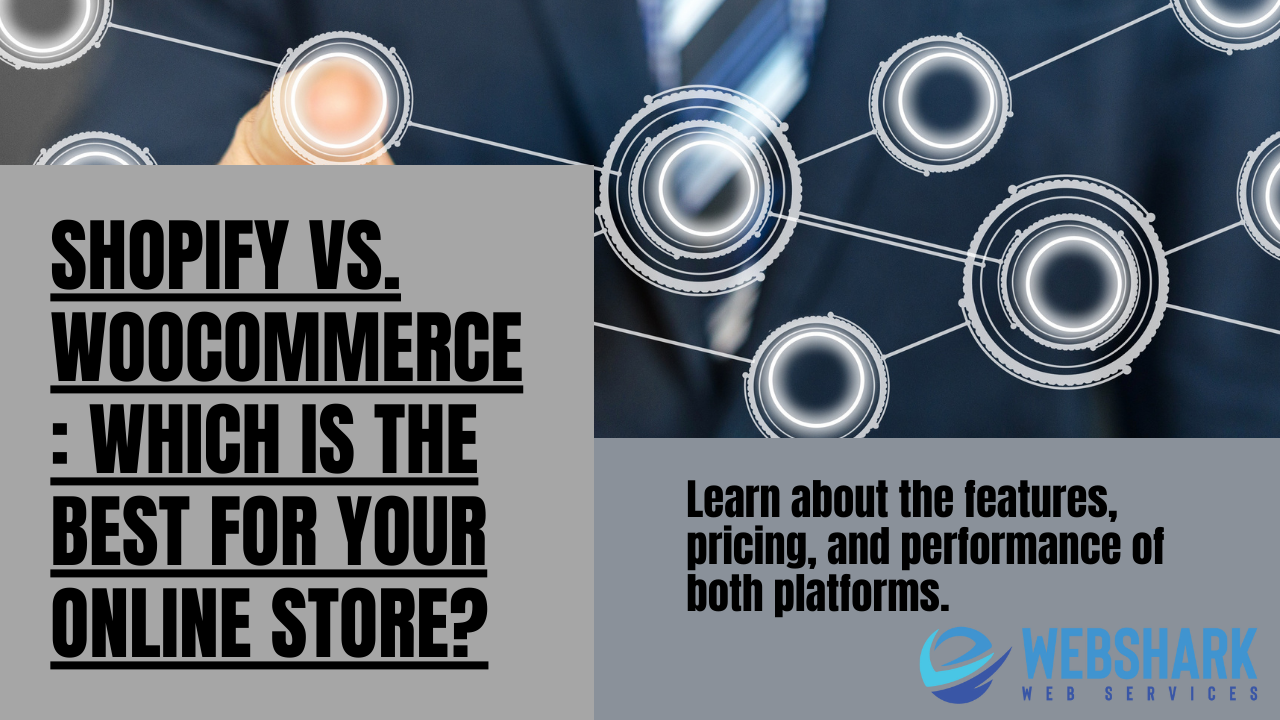Introduction:
Selecting the right e-commerce platform is crucial for the success of your online business. Shopify and WooCommerce are two leading contenders in the market, each offering unique features and benefits. In this comprehensive comparison, we’ll delve into the latest statistics, trends, and insights to help you make an informed decision for your e-commerce venture.
1. Overview of Shopify and WooCommerce:
Shopify:
- Founded in 2006, Shopify has emerged as a leading e-commerce platform, powering over 1.7 million businesses worldwide. It offers a hosted solution, meaning your online store is hosted on Shopify’s servers, providing ease of use and scalability.
- As of January 2024, Shopify powers over 2.1 million websites worldwide, according to BuiltWith. It continues to be a popular choice for businesses of all sizes due to its ease of use and robust feature set.
WooCommerce:
- Developed as a WordPress plugin in 2011, WooCommerce has grown to become the most popular e-commerce plugin, currently powering more than 5.5 million websites. It integrates seamlessly with WordPress, offering flexibility and customization options.
- WooCommerce, a plugin for WordPress, is utilized by over 5.5 million websites globally, making it the most widely used e-commerce platform, according to W3Techs. Its flexibility and integration with WordPress have contributed to its widespread adoption.
2. Ease of Use:
Shopify:
- Renowned for its user-friendly interface, Shopify offers a hassle-free setup process and intuitive backend management. According to TrustRadius, Shopify maintains a high usability rating of 8.9 out of 10 based on user reviews.
WooCommerce:
- While WooCommerce requires a basic understanding of WordPress, it offers unparalleled flexibility and customization options. With user-friendly plugins and themes, WooCommerce provides users with extensive control over their online stores.
3. Features and Customization:
Shopify:
- Shopify provides a comprehensive suite of built-in features, including product management, payment gateways, and marketing tools. Additionally, Shopify boasts over 6,000 apps in its App Store, catering to diverse business needs and enhancing functionality.
WooCommerce:
- With access to thousands of WordPress plugins and themes, WooCommerce offers limitless customization possibilities. From product variations to checkout options, users can tailor their online stores to align with their brand identity and customer preferences.
4. Cost and Pricing:
Shopify:
- Shopify offers tiered pricing plans starting from $29 per month, with transaction fees ranging from 2.9% + 30¢ to 2.4% + 30¢ per online transaction, depending on the plan. Additional costs may include app subscriptions and custom development.
WooCommerce:
- The core WooCommerce plugin is free to use, but users incur expenses for web hosting, domain registration, and premium themes or plugins. While WooCommerce offers a cost-effective solution for startups and small businesses, expenses may vary based on individual requirements.
5. Performance and Scalability:
Shopify:
- As a hosted solution, Shopify ensures reliable performance and scalability for online stores of all sizes. According to Shopify’s official statistics, the average Shopify store loads in 1.2 seconds, contributing to higher conversion rates and improved user experience.
WooCommerce:
- Performance may vary based on the hosting provider and server configuration. However, with proper optimization and caching strategies, WooCommerce websites can achieve comparable performance levels to Shopify stores.
6. Security and Support:
Shopify:
- Shopify prioritizes security with features such as SSL encryption, PCI compliance, and regular security updates. Additionally, Shopify offers 24/7 customer support to assist merchants with any inquiries or technical issues.
WooCommerce:
- Security measures depend on the hosting environment and WordPress security plugins implemented by users. While WooCommerce provides extensive documentation and community support, users are responsible for maintaining the security of their websites.
Conclusion:
Both Shopify and WooCommerce offer robust solutions for creating and managing e-commerce websites, catering to the diverse needs of online merchants. By evaluating factors such as ease of use, features, cost, performance, and support, businesses can determine the most suitable platform for their e-commerce ventures.
(Note: The statistics, trends, and insights mentioned in this article are based on data available as of January 2024 and may be subject to change over time.)
Sources:
– BuiltWith: https://trends.builtwith.com/shop
– W3Techs: https://w3techs.com/technologies/overview/content_management/all
– TrustRadius: https://www.trustradius.com/products/shopify/reviews
– Shopify Official Statistics: https://www.shopify.com/plus/enterprise-ecommerce
– WooCommerce Official Statistics: https://woocommerce.com/ecommerce-stats/






















